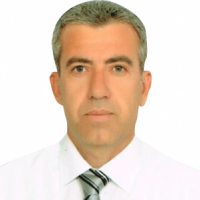-
Turkey: A 100 Years of Suffering from Kurdophobia

Every so often, Turkey launches massive joint air and ground operations in Iraqi Kurdistan under the pretext of fighting Kurdistan Workers’ Party (PKK). The latest one, certainly, will not be the last one, started on 24th April and, of course, it is still going on. The numbers, magnitude, and nature of Turkey’s consecutive operations outweigh PKK’s might and influence in Iraqi Kurdistan by dozens of times. This, in turn, reveals the latent expansionist intentions of Ankara in Kurdistan region and the real danger it poses against the federal rule in Iraq Kurdistan.
What reinforces this preliminary conclusion is that Turkey has built more than 27 military bases in the areas it occupies inside Kurdistan region. Most of these bases were built in the regions where PKK revolutionaries had no presence or activity. This demonstrates that Turkey's goal behind these very costly invasions is to stay for ever. Probably later to prepare for the formal annexation of these areas using the Turkish historical lie, which says that these areas in the past were parts of the defunct Ottoman Empire.
Historically, Turkey has never left any areas it entered through incursions and occupations. The Sanjak of Alexandretta is an example. France withdrew from it in 1939 and then Turkey invaded it and annexed it officially to its territory and even changed its name to Hatay. Currently, Turkey occupies large cities and towns in north, northwest, and northeast Syria and it deals with these areas as if they are already original parts of Turkey.
Turkish military operations in Iraqi Kurdistan and later in Syrian Kurdistan have increased significantly since Erdogan and his party came to power in 2002. More precisely since Erdogan became the president of Turkey in 2014 and then the absolute ruler in 2017.
Anti-Kurdish sentiment, also known as anti-Kurdism or Kurdophobia is considered a hot material for mobilisation and polarisation of voters in Turkey. Erdogan and his party, Justice and Development Party (AKP) have become experts at playing on this sensitive and feasible string in Turkey.
The overt argument is fighting against Kurdish terrorists and separatists in Turkey’s Kurdistan, Iraq’s Kurdistan, and Syria’s Kurdistan. But the hidden - declared goal is to battle and undermine Kurdish aspirations for freedom and independence inside and outside Turkey. On this basis, Erdogan formed an alliance with the Nationalist Movement Party, known for its extreme hostility to the Kurds. Both parties have nothing in common but anti-Kurds and thwarting all their endeavours to obtain rights inside and outside Turkey.
General elections in Turkey, both presidential and parliamentary, are due in 1923, if early elections are not held due to the multifaceted crises afflicting Turkey because of Erdogan's impetuous policies. The anti-Kurd card, ostensibly wrapped in anti-PKK, is a trump card prior and during the election campaigns. Especially, since Erdogan's popularity in Turkey is continuously declining. Therefore, he seeks, with his hard-line nationalist ally, Devlet Bahçeli, to use anti-Kurd card inside and outside Turkey to attract Turkish constituents.
Internally, most of the leaders of the pro-Kurdish Peoples' Democratic Party (HDP) are in prison as well as many of its representatives in parliament and mayors. Externally, the systematic exaggeration of PKK threat and the menace of independent inclination of the leadership of Iraqi Kurdistan continues apace. Military operations allegedly against PKK in Iraqi Kurdistan are continuing. In other words, the claimed Kurdish threat is being fought inside and outside border. Erdogan seeks to cover up his internal failures by directing attention outside Turkey, viz., Kurdish old-new allegedly threat against Turkish national security.
Erdogan is racing against time and plans to achieve a lot by 2023, when Turkey gets rid of the restrictions of the 1923 Treaty of Lausanne, as he claims. Therefore, he works on more than one level and on more than one front. Turkey keeps Interfering in the affairs of neighbouring as well as distant states, occupying large areas in Iraq and Syria, including Kurdish areas. Erdogan simply seeks to restore some of the bygone glories of his Ottoman ancestors, even if that is at the expense of others' suffering and spilling their blood.
Erdogan, the Islamist, like Mustafa Kemal, the secularist, and most of the Turkish leaders between the two periods, suffers from a chronic Kurdish phobia that extends for about a hundred years, if not more.
The former Turkish Prime Minister, Bulent Ecevit, said that "we will fight an independent Kurdish state even if it appears in South Africa". Erdogan has improved this systematic policy as follows; Turkey will fight any Kurdish ambitions to obtain rights even if they are less than independence and even if these endeavours will occur on the moon. Perhaps the essential distinction between Ecevit and Erdogan is that the latter is now targeting Kurdish existence itself, as a people and a nation.
by: Jwan Dibo

You May Also Like
Popular Posts
Caricature
BENEFIT Sponsors BuildHer...
- April 23, 2025
BENEFIT, the Kingdom’s innovator and leading company in Fintech and electronic financial transactions service, has sponsored the BuildHer CityHack 2025 Hackathon, a two-day event spearheaded by the College of Engineering and Technology at the Royal University for Women (RUW).
Aimed at secondary school students, the event brought together a distinguished group of academic professionals and technology experts to mentor and inspire young participants.
More than 100 high school students from across the Kingdom of Bahrain took part in the hackathon, which featured an intensive programme of training workshops and hands-on sessions. These activities were tailored to enhance participants’ critical thinking, collaborative problem-solving, and team-building capabilities, while also encouraging the development of practical and sustainable solutions to contemporary challenges using modern technological tools.
BENEFIT’s Chief Executive Mr. Abdulwahed AlJanahi, commented: “Our support for this educational hackathon reflects our long-term strategic vision to nurture the talents of emerging national youth and empower the next generation of accomplished female leaders in technology. By fostering creativity and innovation, we aim to contribute meaningfully to Bahrain’s comprehensive development goals and align with the aspirations outlined in the Kingdom’s Vision 2030—an ambition in which BENEFIT plays a central role.”
Professor Riyadh Yousif Hamzah, President of the Royal University for Women, commented: “This initiative reflects our commitment to advancing women in STEM fields. We're cultivating a generation of creative, solution-driven female leaders who will drive national development. Our partnership with BENEFIT exemplifies the powerful synergy between academia and private sector in supporting educational innovation.”
Hanan Abdulla Hasan, Senior Manager, PR & Communication at BENEFIT, said: “We are honoured to collaborate with RUW in supporting this remarkable technology-focused event. It highlights our commitment to social responsibility, and our ongoing efforts to enhance the digital and innovation capabilities of young Bahraini women and foster their ability to harness technological tools in the service of a smarter, more sustainable future.”
For his part, Dr. Humam ElAgha, Acting Dean of the College of Engineering and Technology at the University, said: “BuildHer CityHack 2025 embodies our hands-on approach to education. By tackling real-world problems through creative thinking and sustainable solutions, we're preparing women to thrive in the knowledge economy – a cornerstone of the University's vision.”
opinion
Report
ads
Newsletter
Subscribe to our mailing list to get the new updates!




















